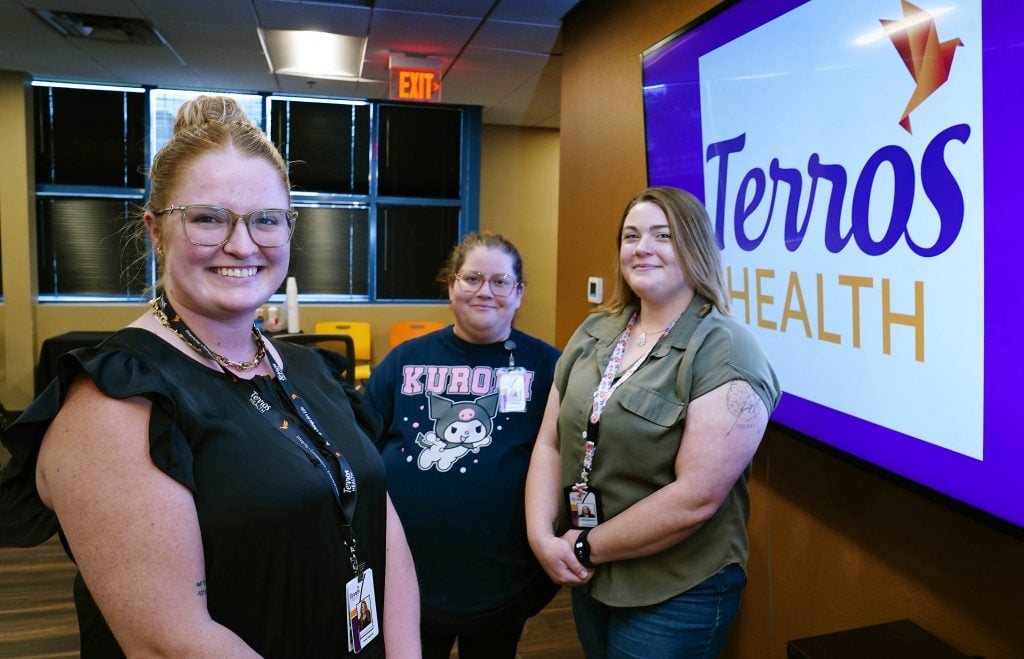
Photos by Ralph Freso
Brittany Dustin’s team is relied on heavily to help the ailing, despondent and lost on Phoenix’s west side.
“I supervise 11 and four are from GCU,” said the case manager coach at Terros Health off 23rd and Dunlap avenues. “We are the GCU team.”
It’s tough, important work at the Terros health clinics and counseling centers for these Grand Canyon University graduates, who got their degrees in psychology, counseling and social work, right down the road in what can be tough parts of town.
“We lost two people in one week once,” Dustin said. “It really hurts. You can’t save everybody. We give them the tools they need, but sadly, fentanyl is taking over.
“Fentanyl is ruining Arizona – the ‘fentanyl funnel’ – comes up from Mexico and it hits Phoenix. That’s what we deal with on the daily, the society problems that people don’t see or ignore.”
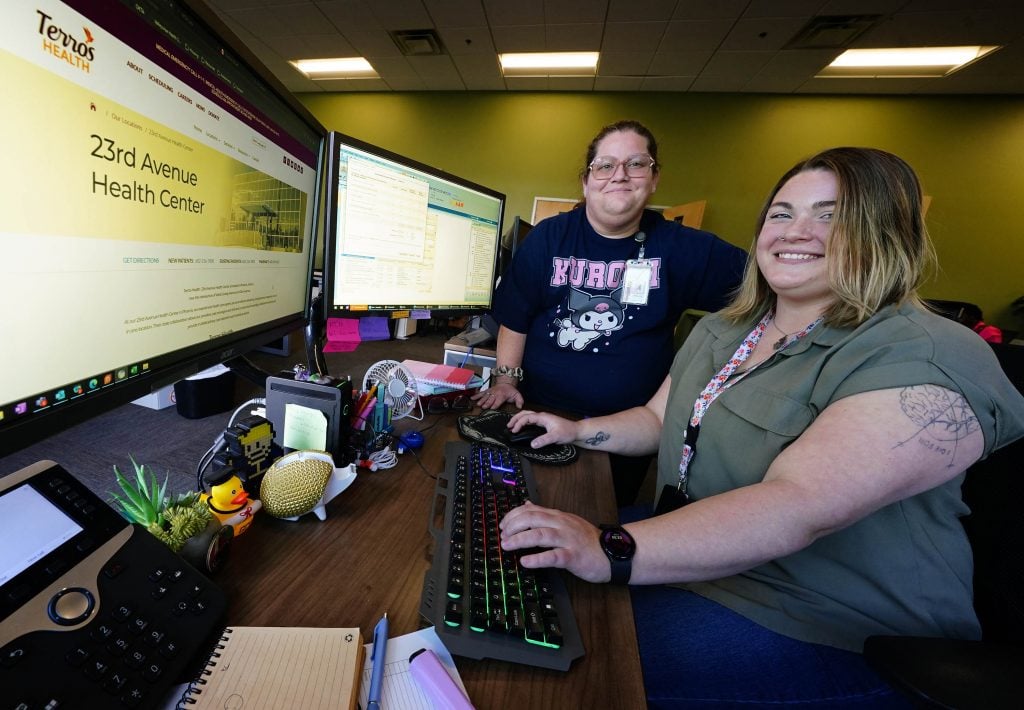
The waiting room was full on a recent day, many clients with head in hand, waiting for appointments.
“What we do on a daily basis is literally helping people on their worst day,” she said. “When you are SMI (serious mental illness), your worst day is every day. Our job is to make sure they get whatever resources they need.”
Sometimes clients just need a shower and emotional support, but they also need counseling, substance abuse treatment, medication management or are homeless and need help finding housing.
She found GCU after a rough patch in her own life, earned an undergraduate degree in psychology in 2017 and expects to soon finish a master’s in counseling. Her internship was at the nearby Terros clinic at 27th Avenue and Indian School a few blocks away, where she once went for counseling and medication management.
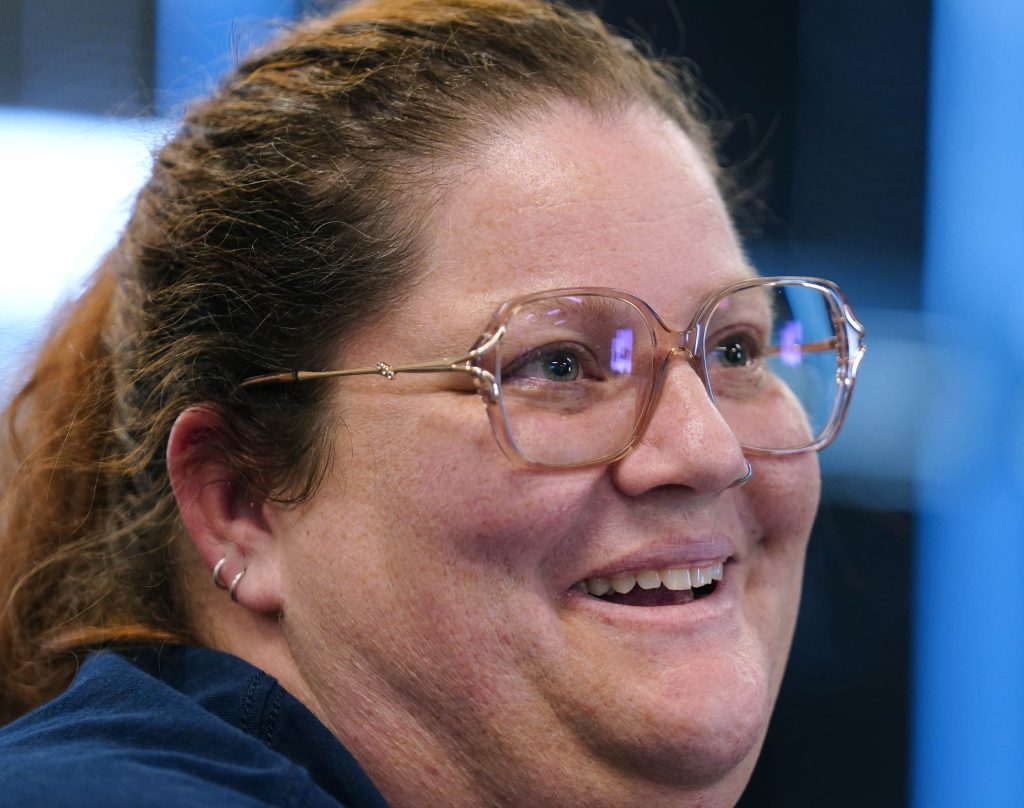
“In this field, if you haven’t had it, it’s hard to treat it. If you haven’t experienced mental illness, it’s hard to empathize with people,” she said. “You don’t want to give them sympathy, you want to be empathetic.”
A member of her team can relate, case manager Jacquelyn Dulaigh, who earned degrees at GCU in psychology and film in 2022.
“I like the ability to balance the clinical and administrative. I like helping people, but as someone who has their own mental illnesses, I needed to not be so up front with people 100% of the time,” she said. “Terros is big on self-care. It’s a stressful day. Are (clients) having a good day or a bad day?”
Terros is also big on GCU, and with five clinics not far from campus, its recruiters often come to GCU, which “rolls out the purple carpet,” said Heather Cepek, Terros’ manager of recruiting and human resources operations. She said numerous GCU graduates work in their operation of roughly 1,200 employees.
“When we see GCU on a resume, we are going to assume they have great work ethic. They are usually dedicated,” she said. “I always value when I speak with the students. They know what they want. They are goal-oriented. They have a goal in mind, and they are not afraid to pursue it. We like that.”
Both Dustin and Dulaigh said they were unsure of attending a Christian school, but after taking Christian worldview classes at GCU, it opened their eyes to critical thinking and respecting everyone’s opinion on faith.
Both also delivered pizzas on campus, working their way toward degrees to help many people who often are without a hot meal – or a home.
“It’s hard work, but it’s rewarding,” Dustin said. “When you finally get that person a housing voucher after years of no roof over their heads, it’s satisfaction you can’t describe.”
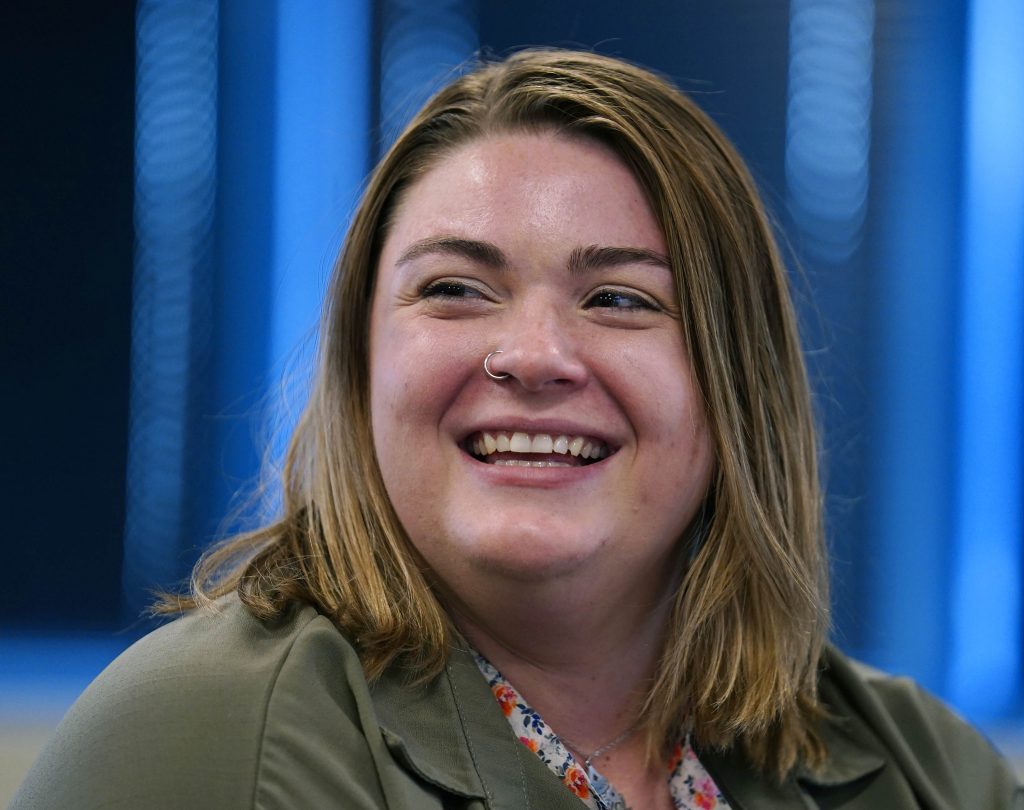
Dulaigh counts her best day as when a client secured a home, which often takes more than a year or longer. “Now every time I talk to him, he looks presentable. And I have another member who will become part of our peer support. Both, I met on their worst days. When I met him, he couldn’t keep his eyes open, and she was having outbursts every day.”
They said once housing is secured, many of their problems, including substance abuse, begin to wane.
“My feelings? I don’t care about my feelings. I care about their feelings,” Dustin said. “They are priority.”
GCU fosters that kind of servant.
“We are very proud and grateful for our students in the helping professions as they play a crucial role in transforming the lives of individuals facing mental health challenges, substance use disorders and homelessness,” said College of Social Sciences Dean Dr. Sherman Elliott. “Through their dedication and empathy, they provide essential support, guidance and interventions that foster healing, which leads to the transformation of individual lives and communities.”
Many are promoted within Terros, which has nine health and counseling centers across the Valley and a residential facility.
After two years at Terros, MiKenna LaVenture was promoted to clinical coordinator at the clinic in Tempe. She says she often sees other GCU graduates at Terros with that same drive to learn and advance with patience and empathy.
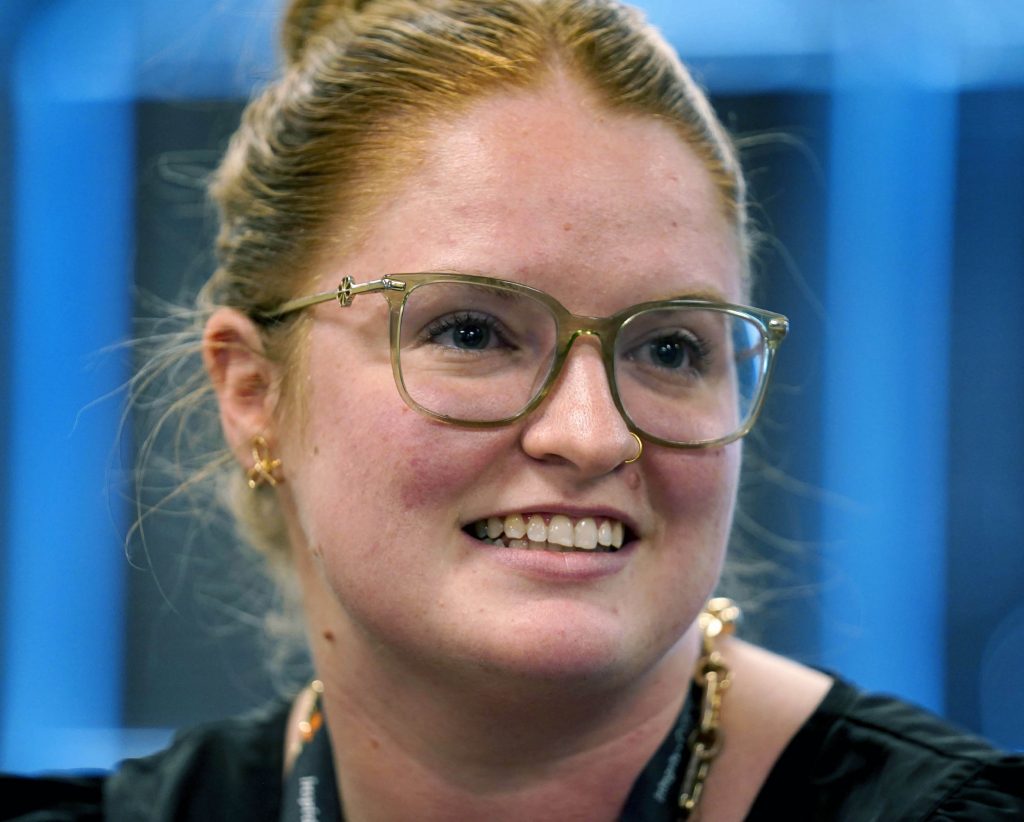
“You can’t teach empathy, but you can display empathy. A big thing to learn is how to understand someone’s life,” said the 2017 psychology graduate who got her master’s degree in mental health and wellness in 2024.
“GCU taught me a lot about community and really accepting people, so many from across state and country. That’s what I try to do here, whether it be the staff I work with or directly with clients.”
She said her own family suffered with mental health conditions, and it helped her relate. Those with serious mental illness often need services that range from counseling to getting a high school diploma.
“I get to work with so many different clients and so many different people day to day that I feel like I am making an impact in someone’s life in some sort of way,” she said. “Many have never been given a chance, that opportunity to be on their own and live life to the fullest.”
Grand Canyon University senior writer Mike Kilen can be reached at [email protected]
***
Related content:
GCU News: Arizona Capitol trip kindles advocacy in social work students
GCU News: An inaugural social worker's journey, right into humble service



































































